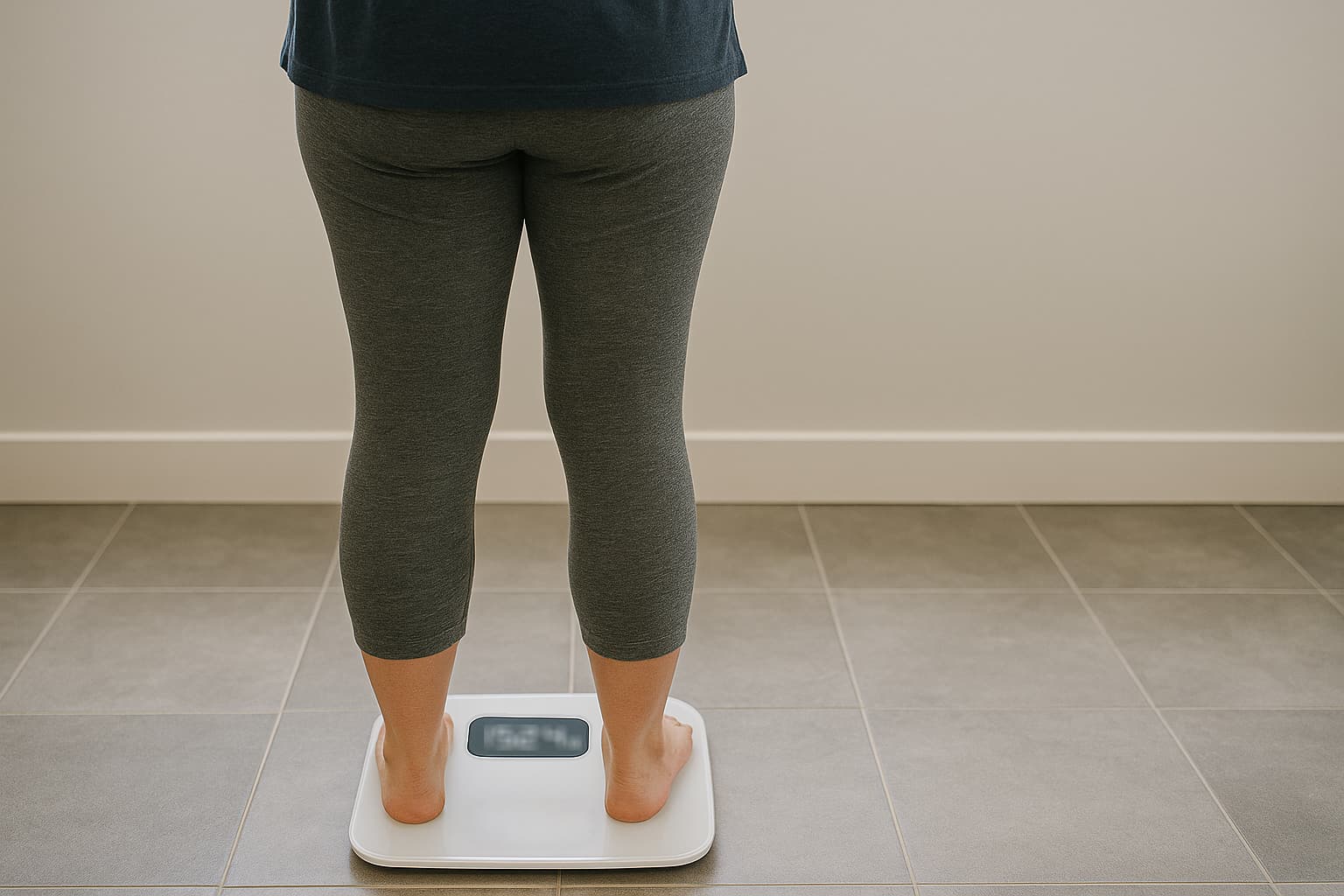
Importance of Fiber For Meeting Body Composition Goals
Fiber is a truly underrated nutrient. Let me guess, when you think of fiber, your grandma’s Metamucil is the first thing that comes to mind. Sure, fiber is ...

The type of scale you choose to use can vary weigh in results. Some scales are more accurate than others and most scales will vary slightly unless calibrated. Keep this in mind and take this factor into account for differences in scale weight. Try to be consistent with the scale that you use.
The timing of the meal you consumed closest to bed as well as food choices the day prior is another factor. Higher fiber foods will take longer to empty from the stomach. This will generally result in the body retaining more food weight as the stomach has not had a chance to digest the food ingested before bed and expel the waste. Avoid huge fluctuations in meal timing before bed for more consistent weigh ins in the morning.
Join the over 1 Million successful users who've transformed
their fitness journey with My Macros+.
will increase weight typically the next day. Tracking sodium is not required, but you may want to indeed track sodium at times to get a good gauge on where your intake lies. Huge fluctuations in sodium can also result in weight fluctuations. Many meals out at restaurants are sodium packed due to sauces and cooking methods. Do not be surprised if you see an increase on the scale after a meal out at a restaurant. Also remember that deli meats, smoked meats, and soups can also be higher in sodium. Simply being aware of sodium intake is important for consistent weigh ins.
high stress levels increase cortisol in the body. This hormone can result in water retention and result in additional weight. Getting a good night’s sleep and trying to manage stress levels should be a priority for overall health and wellness.
Hormones before, during, and after a menstrual cycle for women can affect scale weight tremendously. Weight gain can begin up to 10 days before the menstrual cycle and last even after a women’s cycle ends. If you are a woman, try to note trends in weight during these times in order to have a good gauge on what to expect during these times. Weight typically trends up during the menstrual cycle, but each individual is different. Noting your own individual trends is key to better understanding fluctuations on the scale. Medications affecting hormones can also result in weight changes. Make sure you are having a discussion with your doctor or pharmacist if you are concerned about any effects of current medications.
to keep in mind to be consistent with weigh ins and your progress. I would recommend weighing yourself 2-7x per week and taking the weekly average in order to get a more accurate view of your weight progress. This can help level out any fluctuations associated with the factors mentioned above.

As a pro natural bodybuilder, elite powerlifter, coach, and technique specialist, I strive to bring a message of hope and inspiration to those with fitness and wellness goals. It has become my mission to gain experience in science-based training and nutritional methods in order to help others reach their potential.
I have found my passion in helping others achieve their fitness and lifestyle goals and I hope you can utilize Macro Coach to take another step closer to your aspirations.

Fiber is a truly underrated nutrient. Let me guess, when you think of fiber, your grandma’s Metamucil is the first thing that comes to mind. Sure, fiber is ...

The work you do before and after your workout is just as important to your fitness goals as the effort you put into your exercise. This work, however, is done in the kitchen!...